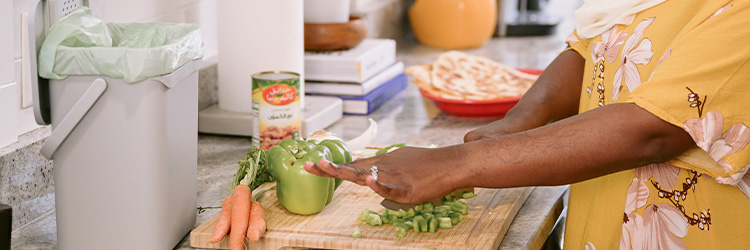Ramsey County services are not impacted by the Federal shutdown at this time.
Food Scraps

Beginning of tab section with 2 tabs. Left and right arrow keys will navigate between tab navigation links.
Food Scraps Drop-Off
Bring your food scraps to a Ramsey County collection site for composting. All sites are open to Ramsey County residents. Arden Hills, Battle Creek, Frank & Sims and White Bear Township collection sites are also open to Washington County residents.
Food Scraps Pickup
Ramsey and Washington counties are rolling out a new way for residents to recycle food scraps from home— the food scraps pickup program!
Did you know that food scraps make up about 20% of trash by weight collected in the two counties? By recycling your food scraps, you can help turn this material into soil, rather than waste.
The program is currently available to all residents of Maplewood and North St. Paul and will roll out to the rest of Ramsey County over multiple years.
Visit FoodScrapsPickup.com or call 651-661-9393 to get started. Not yet eligible to participate? Sign up to receive emails when the program becomes available in new areas.